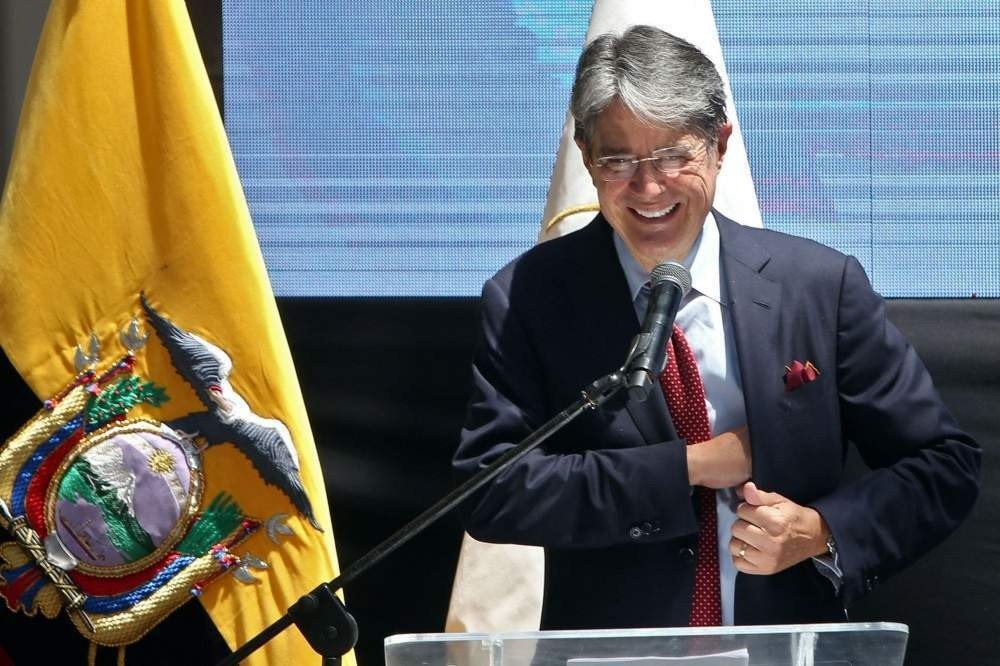RIO DE JANEIRO, BRAZIL – Ecuador is advancing on an uphill road to obtain foreign investment amid the international expectation of the government of the center-right Guillermo Lasso and under the watchful eye of social and environmental organizations, opposed to privatizations and damage to nature, respectively.
In its almost eight months in power, the government has knocked on several doors to show the country as an attractive destination for investment, and in November presented in the conference “Ecuador Open for Business” a portfolio of projects of up to US$ 30 billion for its four years of administration.
CLEAR RULES
According to Central Bank data, Foreign Direct Investment (FDI) from January to September 2021 fell to US$493 million compared to US$985.9 million for the same period in 2020, which investment expert Cristina Viteri attributes mainly to the uncertainty of last year’s electoral process.

To this, economist Alberto Acosta Burneo adds that, in previous years, investment growth was tied to the development of large-scale mining projects, a sector he believes will contribute again since there are eleven initiatives in advanced stages that “will involve large amounts”.
In December, the government announced the achievement of some US$ 2 billion in investment intentions, only that the statistics for 2021 do not record them because they have not been finalized, according to official sources.
“We have oil, minerals, clean energy (…), possibilities of development in telecommunications, in the field of infrastructure”, highlighted Lasso this Tuesday in the radio program “Let’s meet for citizenship”, organized by the Secretariat of Communication.
There he recalled that the Ecuadorian GDP “ended up growing 4.1%” in 2021, when the expectation when he came to power (May 24) was 2.5% and argued that “Ecuador has the possibilities of aiming at even higher growth” thanks to all these sectors.
Lawyer and expert in dispute settlement, Viteri believes that the country’s return to the 1966 Convention on the Settlement of Investment Disputes between States and Nationals of Other States (ICSID) is among the “good steps” of the government in search of investment.
However, “there is still much to be done”, he warned Efe, because “although positive actions have been taken, it is still necessary to wait a while to see if it has attracted the attention of investors”.
Among the pending issues, Acosta Burneo emphasizes offering “legal security and building competitiveness, because one of the problems for foreign investment is that Ecuador is an expensive country”.
And, although the most significant investments are in sectors linked to natural resources, the government should promote a generalized investment environment, according to the latter expert, who sees great potential in alternative sectors such as agro-exports and agro-industry.
FAVORABLE CLIMATE?
For Viteri, the current climate is “favorable” for investment because, in the last months, the country has improved a lot the country risk, and “reforms are being implemented to attract investment” in an uphill road in which Lasso must generate confidence, offer legal security and conscious management of natural resources.
And although he has given “signs of tranquility and of being a friendly government for investors”, Acosta Burneo reminds that for investment to flourish, more “than pretty speeches”, legal and economic certainties are required, something that “cannot be achieved overnight”.
“The environment for investment has improved from the area of expectation: it is a government that is going to do everything possible to try to boost investment, but it has to concretize the different actions that generate institutionality” because governments last four years and investors think in the long term, he told Efe.
PEACEFUL ENVIRONMENT
With the data of the first nine months of 2021 in hand, the political challenge for the government is enormous because some of its investment hopes clash head-on with the opposition of environmental movements and other social groups that demand respect for nature and the public patrimony.
“We do not believe in responsible mining. No exploitation of non-renewable resources can be responsible either with the present or future population,” Alexandra Almeida, of Acción Ecológica, complained to Efe, who criticized the fact that Ecuadorian governments see extractivism as a way out of their fiscal crises.
Lasso, seeking public-private alliances for projects, also faces opposition from social groups who fear possible privatization of public infrastructure and have threatened to take to the streets to prevent it.
While the government insists on dialogue: “We can develop the country, but a fundamental element is required: peace and tranquility. We have to lower the level of conflict in Ecuador, change the culture of hatred for that of dialogue, the search for agreements and understandings”, says Lasso.

